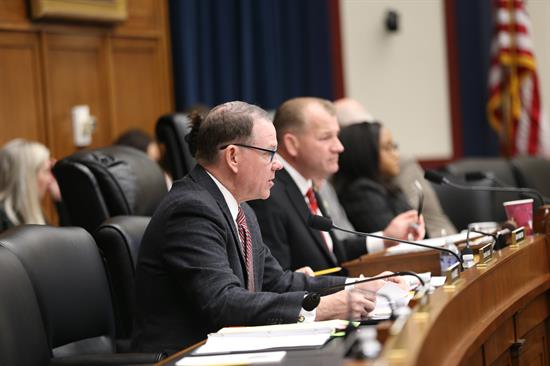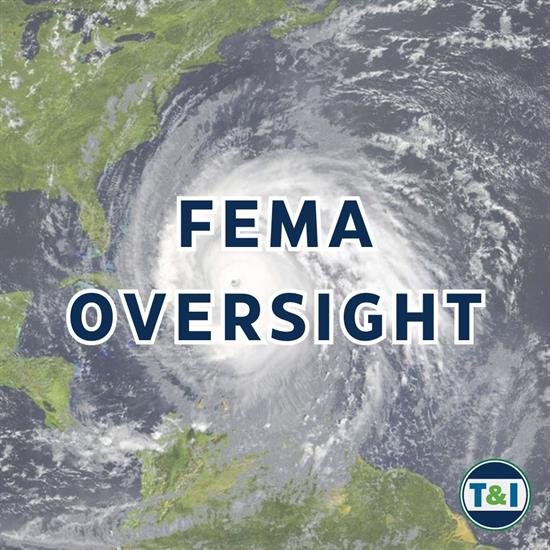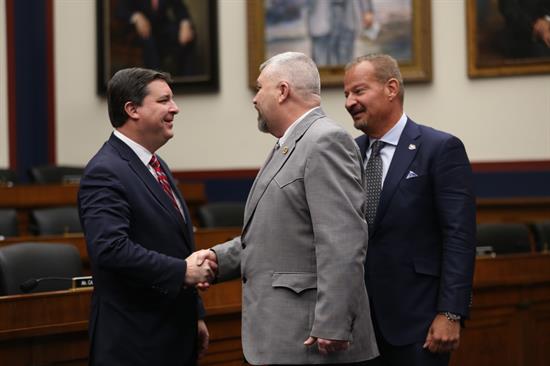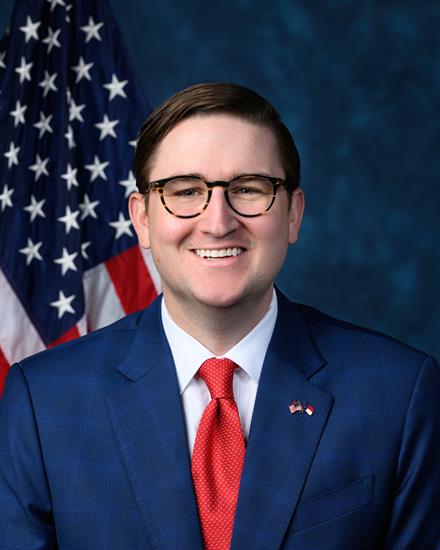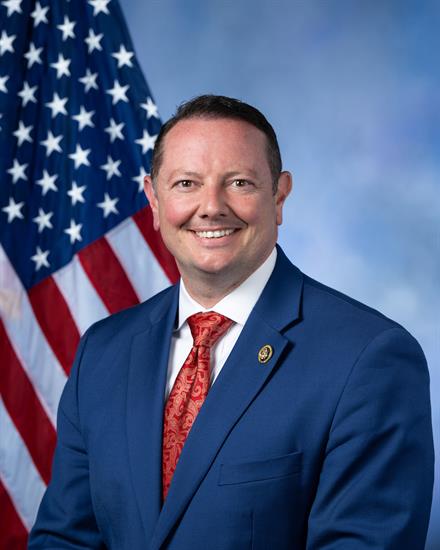
| THE RUNWAY: MARCH RECAP |
| In this Issue: | ||||
|
| SUBCOMMITTEE HEARINGS | |||
|
America Builds: Air Traffic Control System Infrastructure and Staffing Following recent tragic aviation accidents, the Aviation Subcommittee held a hearing to discuss the need to invest in modernizing and adequately staffing the U.S. air traffic control (ATC) system. Members highlighted the need to improve the ATC system through new investments in ATC hiring and technology. The FAA Reauthorization Act, which was signed into law last year, included provisions to promote controller hiring and technology improvements, and President Trump and Secretary Duffy have voiced their support for historic investments in air traffic control facilities and technologies. Witnesses focused on the need to improve the ATC system and highlighted the importance of implementing the recent FAA law’s provisions to maintain the gold standard in aviation safety. Additional information about this hearing is available here. |
|||
America Builds: Coast Guard Acquisitions and Infrastructure The Coast Guard and Maritime Transportation Subcommittee held a hearing on March 6th to discuss challenges facing the U.S. Coast Guard’s efforts to modernize its ship and aircraft fleets, shoreside infrastructure, and information technology (IT) – all major assets necessary in carrying out its missions to secure our maritime borders, help stop the flow of illegal drugs and migrants into the country, perform search and rescue, and more. Subcommittee Chairman Mike Ezell (R-MS) began the hearing by noting the Service’s difficulties in recapitalizing under ongoing budget limitations. Witnesses agreed that continued Congressional support and investment in assets, systems, and infrastructure would benefit mission execution. Chairman Ezell also raised concerns about the Service’s failure to provide Congress with required yearly reports intended to help Congress better evaluate and equip the Coast Guard with the resources it needs. Additional information about this hearing is available here. America Builds: Making Federal Real Estate Work for the Taxpayer The Subcommittee on Economic Development, Public Buildings, and Emergency Management held a hearing to examine strategies to transform the federal government’s real estate portfolio by consolidating, relocating, and selling unused and underutilized spaces. The hearing focused on building upon Committee reforms included in the Thomas R. Carper Water Resources Development Act of 2024 to maximize space utilization or relinquish underutilized or unused space. Rep. Ezell, who chaired the Subcommittee’s hearing on March 5th, underscored the federal government’s wasteful spending on unused office space. One of the witnesses testified that the federal government spends two billion dollars a year to operate and maintain federal office buildings, regardless of whether the building is being used. American taxpayers are literally paying billions for federal office space to just sit empty. Rep. Ezell said in his opening statement, “This is not a partisan issue – even the Mayor of Washington, D.C. has highlighted the negative impact of empty federal offices on the local economy here in the Nation’s capital. American taxpayers expect Congress to hold the federal government accountable for all of its wasteful spending.” Additional information about this hearing is available here. Water Infrastructure Financing: WIFIA and the Clean Water State Revolving Fund The Water Resources and Environment Subcommittee held a hearing on March 11th to examine the benefits to states and local communities of federal water infrastructure financing programs, including the Clean Water State Revolving Fund (CWSRF) and Water Infrastructure Finance and Innovation Act (WIFIA) programs. Members asked witnesses about how those programs may be improved to help communities improve their water infrastructure. Witnesses discussed the importance of the CWSRF and WIFIA programs to states’ and local communities’ ability to finance their water infrastructure needs, including for smaller and rural communities. All the witnesses highlighted the need to reduce red tape and streamline access to assistance and maintain flexibility for those who use the programs. Rep. Dave Taylor (R-OH) discussed the benefits of utilizing CWSRF funds, especially for small and rural communities, and how loans – compared to grants – can be better leveraged to finance more of states’ and communities’ needs. “Based on my research, keeping the state revolving fund as a federal loan lowers utility bills for customers and provides additional funding for their water projects across the United States.” Additional information about this hearing is available here. Reforming FEMA: Bringing Common Sense Back to Federal Emergency Management |
|||
|
2024 was a challenging year for disaster response and recovery that highlighted cracks in the nation’s emergency management system, prompting a broader conversation about what the future of the Federal Emergency Management Agency (FEMA) should look like and President Trump’s establishment of a FEMA Review Council. On March 25th, the Subcommittee on Economic Development, Public Buildings, and Emergency Management held a hearing to address the current state of emergency management, including ways to reform FEMA and federal disaster assistance. “Taxpayers fund FEMA grant programs for states and local governments to invest in mitigation, preparedness, and response, yet many of these programs move too slowly, preventing timely and effective action when it is most direly needed. For 46 years, individual regions should have been reducing risk, the impact of emergencies, and the number of emergencies themselves. Unfortunately, the metrics, including the cost and impact, have all gone in the wrong direction,” said Subcommittee Chairman Scott Perry (R-PA) in his opening statement. “Federal disaster assistance was created to support state and local governments when absolutely necessary – when the resources required exceed the ability of local agencies to respond. Unfortunately, the trend has been to utilize FEMA as the first responder to every disaster occurring throughout the nation.” Read more about the Subcommittee hearing here. America Builds: How Trucking Supports American Communities As Congress prepares to reauthorize the nation’s surface transportation programs, the Subcommittee on Highways and Transit held a hearing to review the U.S. Department of Transportation’s policies and programs affecting the trucking industry. Trucking moves nearly two-thirds of all goods, with 80% of communities relying solely on trucks for essential supplies. Subcommittee Chairman David Rouzer (R-NC) stated that in North Carolina, 85.6% of communities depend on trucking, which also supports one in every 15 jobs. The industry's dedication was evident during Hurricane Helene when truckers swiftly delivered aid to many in need. However, witnesses detailed that challenges persist, including workforce shortages, regulatory compliance, and rising costs. The next surface transportation reauthorization bill presents an opportunity to address these issues and improve the trucking workforce and the economy. “We have an opportunity in our surface bill to address such challenges in a smart and targeted manner while strengthening local communities and our economy,” said Chairman Rouzer in his opening statement. Additional information about this hearing is available here.
|
|||
| LETTERS | |||
|
Bipartisan T&I Committee Leaders Urge E.U. to Stop Circumventing Proper Diplomatic Channels in Effort to Undermine U.S. Maritime Law On March 6th, T&I Chairman Graves and Coast Guard and Maritime Transportation Subcommittee Chairman Ezell were joined by their Democratic Committee counterparts in raising significant concerns about European Union efforts to undermine the Jones Act, a law important to the U.S. commercial shipbuilding industry, the stability of the U.S. supply chain, and America’s national and economic security. The T&I leaders noted concerns over the recent Foreign Agents Registration Act (FARA) filing on behalf of the E.U., which was required by the E.U.’s financing of a U.S. firm to create TikTok-like videos to criticize the Jones Act as part of a larger E.U. lobbying and public relations campaign to challenge it. The letter states, “the activities described in the attached lobbying campaign document go far beyond trade negotiations. Rather it appears, that the E.U. is seeking to influence United States policy on the Jones Act not through diplomatic means, but instead through an advocacy campaign, including collaboration with previously undisclosed United States organizations and social media influencers.” The Committee and Subcommittee leaders urged the E.U. to halt its efforts to bypass traditional diplomatic channels and undermine American public trust in federal law and policy. Read more about the letter to the E.U. Ambassador to the United States here. |
|||
| MEMBERS SPOTLIGHT | |||
|
Rep. Addison McDowell (R-NC) is a first-term Congressman representing North Carolina’s 6th Congressional District. Motivated by the tragic loss of a family member to fentanyl poisoning, Rep. McDowell has made it his top priority in Congress to protect our borders from illegal aliens and substances. McDowell is an active member of three T&I subcommittees: the Aviation Subcommittee, the Coast Guard and Maritime Transportation Subcommittee, and the Highways and Transit Subcommittee. At a Coast Guard and Maritime Transportation Subcommittee hearing this month, Rep. McDowell, who is the Subcommittee’s Vice Chairman, noted the Trump Administration’s crackdown on border security and asked witnesses about preparations to further bolster U.S. ports of entry against drug and migrant traffickers. |
|||
A second-term Congressman, Rep. Eric Burlison (R-MO) represents Missouri’s seventh district. He sits on the Highways and Transit Subcommittee; the Railroads, Pipelines, and Hazardous Materials Subcommittee; and the Water Resources and Environment Subcommittee. In his March op-ed to the Washington Times, Rep. Burlison underscored a revitalized focus on infrastructure policies this Congress to reduce red tape and wasteful regulations, goals that will be central to a multi-year surface transportation reauthorization bill this Congress. At a Water Resources and Environment Subcommittee hearing this month, Rep. Burlison discussed the importance of state flexibility, the benefits of federal water infrastructure financing programs being largely run by the states, and how too many Congressional mandates increase the costs of water infrastructure projects. |
|||
|
IN THE NEWS |
|||
|
This month, T&I Committee Republicans were featured in an infrastructure-focused section of the Washington Times called "American Infrastructure: Building the Future" This section highlights various aspects of the Committee’s agenda for the 119th Congress. T&I Chairman Graves lays out the Committee’s priorities for the next two years and how he will work with the Trump Administration to focus on traditional infrastructure. Read more. Highways and Transit Subcommittee Chairman Rouzer writes about the next surface transportation reauthorization bill and how it will affect every community in the country. Read more. Water Resources and Environment Chairman Mike Collins (R-GA) points out the need for vital water infrastructure projects to be completed on time and within budget. Read more. Railroads, Pipelines, and Hazardous Materials Chairman Daniel Webster (R-FL) writes about the increase of crime related to Amtrak and America’s freight railroads. Read more. Coast Guard and Maritime Transportation Chairman Ezell, in his bipartisan op-ed with his Democratic counterpart, reenforces the importance of the Jones Act, a law that supports America’s shipbuilding capabilities and our national security. Read more. Economic Development, Public Buildings, and Emergency Management Chairman Perry highlights wasteful spending in federal office space utilization, and his bill – now signed into law – to save billions of dollars for taxpayers. Read more. Rep. Brian Babin (R-TX) highlights the importance of investing in ports, waterways, and other water resources infrastructure for global commerce and protecting communities. Read more. Rep. Mike Bost (R-IL) focuses on putting people above politics when it comes to infrastructure, from addressing the shortage of parking for our truckers, to reducing delays for projects that Americans depend on, and ensuring that rural America isn’t left behind in transportation programs. Read more. Rep. Bruce Westerman (R-AR) discusses how oppressive federal oversight and lengthy and costly permitting processes burden our economic competitiveness and our ability to build effective infrastructure. Read more. Rep. Jefferson Van Drew (R-NJ) emphasizes the need to leverage technology and resources, including AI, towards increasing efficiency and productivity and revitalizing our infrastructure. Read more. Rep. Burlison underscores a renewed focus on infrastructure policies this Congress to reduce red tape and wasteful, counterproductive regulations. Read more. |
|
